I Don’t Want to Talk About It: Grief
Grief. It’s a subject that many of us don’t like to talk about. It can make us feel uncomfortable, angry, depressed, or just plain sad. Why shouldn’t we avoid thinking about grief unless it is absolutely necessary? Why read about it or discuss it unless there is no way around it?
Our discomfort with grief leads many of us to say things like “It’s time for you to move on.” “This isn’t healthy.” “It’s been long enough already.” “When are you going to get over this?” Often, we kick ourselves for not resolving our feelings of loss quickly enough.
I was living and working in New York on 9/11. Every year, as that date approaches, I find a sense of sadness welling up inside me. Then it slowly lessens as the month moves on. Even nineteen years later, random memories or simple conversations can suddenly bring up a well of tears that literally leaves me unable to speak. The haunting, palpable sense of pain and loss was like a cloud that had settled on the city, with no plans to depart anytime soon.
The fire seemed like it would never stop burning. I continued to find a strange, silvery, smoke residue in nooks and crannies in my apartment months later. The constant presence of National Guard soldiers and the sight of police and firefighters in their dress uniforms attending the endless funerals ensured that we did not forget what had happened for even a moment. I imagine that many of us cried most days. Even several years later, staff I knew who worked at a library that had been designated as a triage center told me stories of waiting and waiting and waiting for survivors who never came. The pain we experienced as a community left indelible memories and has probably changed us all in ways we may not even realize.
Environmental disasters, pandemics, wars, atrocities, and terroristic events can all bring an enormous sense of grief to the members of a community. In addition to the pain these incidents inflict through the loss of family, friends, and community members, they also threaten our sense of safety. When an individual did not suffer a personal loss, outsiders don’t always understand this type of grief. Yet the destruction of a community can be as difficult to recover from as a personal loss.
People such as first responders can suffer from survivor’s guilt. Others may find themselves feeling angry and powerless to know how to comfort friends or find anything to do that feels like a help to their neighbors. Those who do suffer a personal loss amidst a community-wide tragedy may still feel that no one truly understands their pain.
For the family and friends of anyone who dies by suicide, there is a double whammy. In addition to the intense feelings of loss and guilt, there can be a sense of stigma. We feel judged (whether others are judging us or not) for not knowing our loved one was suffering, for not seeing their despair. We also may feel a sense of social shame from those who believe suicide is evil or wrong, instead of a part of the spectrum of how some cope with human suffering. Loved ones of suicide victims may have a very difficult time reaching out for support when they fear judgment.
Anyone who is suffering a loss needs a shoulder to lean on. Often, we fail to listen to one another because we feel too uncomfortable to simply lend an ear, wait in silence, and let them speak until they have finished what they need to say. How often do we find ourselves thinking, “But I don’t know what to say” instead of “Let me find the strength to just listen”?
My response to my own inclination to dismiss grief comes from an old friend who told me something that brought me great comfort: “There is no statute of limitations on grief.” She had lost a parent at a young age, and found that throughout her life and despite having mostly “good” days, that sense of loss could still hit her when she least expected it. In time, she learned to accept and respect it as the price she paid for loving her parent so dearly.
My family members have a saying about death and the grieving process: “The only way through it is through it.” Once you have truly and deeply loved someone, it is unlikely that you can evade the overwhelming feelings of grief that follow their death. It’s a process we must experience, try as we might to avoid or put if off. So we cry, we scream, we pray to wake up from the nightmare. We may curse. We embrace one another and share memories. We hope that by sharing the pain, we can make it through.
Over time, we may suddenly sense that we have “moved on” from something we are grieving and no longer feel lost or overwhelmed. Some of us come to this through thoughtful internal work or professional therapeutic support. Conversely, we may find that as months, years, or decades pass by, we still feel pulled down into an abyss of overwhelming sorrow at a loss we have suffered. Either of these feelings can take us by surprise. We may look back at the loss of loved one and realize now we only feel the joy of having known them or gratitude for the many beautiful memories and gifts they gave us. We may also have days (or weeks, or more) when we cry—even when we thought we had passed through the worst of our grief.
Several years back, my family suffered a tragic loss like so many other families have experienced. A young cousin was killed in a random, unexpected accident on his way home from high school. There was no rhyme nor reason for it. The loss blindsided us and left us dazed with grief. I probably cried at least once a day for about a year, tapering to an average of a few times a week, then a few times a month. I think I’m probably at less than once a month now. One of my sisters had a similar experience. She told me, “Sometimes I’m just driving down the road and I suddenly start crying.” I remember the sense of relief I felt as I said, “Me, too!”
But one of the most unexpected things I remember about that time was the number of people I knew (or barely knew) who approached me to tell me about their own stories of loss. A colleague came to tell me about his sister who had died over 30 years earlier and how he still thought about her all the time. Two women separately spoke to me about children they had lost—one an adult and one a young child. I realized how many of us carry these stories within us, and don’t feel we can discuss them unless it seems “appropriate.”
Other friends and coworkers, often people I didn’t even know very well, offered sympathy, prayers, or just a few words to try to lighten the suffering. Of course, no one had a “perfect” response to my situation. But I will never forget, regardless of how well or imperfectly phrased, these compassionate exchanges.
Dear reader, if you have read this far, I understand that you may be affected by grief in your life right now, or these thoughts that I have written down may have stirred old feelings and memories that you thought were in the past and buried. Grief will wax and wane throughout our lives—if we are lucky enough to have experienced love for a parent, child, lover, friend, pet, or neighbor.
I have found reading about grief to be an enormous help to my spirit, even if the tears occasionally stream down my face as I read. You may find that reading about others’ stories can bring you some comfort and healing. I’m leaving a list of wonderful books our library system has that you may find useful if you are working through a phase of grief, know someone in this situation, or just find the topic compelling. If you need more support, please contact a Mercer County Library reference librarian for help locating additional resources, such as support groups or other therapeutic services for grief.
Sending peace to all!
The Baby Loss Guide: Practical and Compassionate Support With a Day-by-Day Resource to Navigate the Path of Grief by Zoe Clark-Coates
“Written by one of the world's leading baby loss support experts, The Baby Loss Guide is designed to help you navigate this complex issue. Whether you have personally encountered loss, or are supporting people through this harrowing time, this book provides practical and compassionate advice.”
Beyond Tears: Living After Losing a Child by Carol Barkin
Support for those who have lost a child.
Closure: The Rush to End Grief and What It Costs Us by Nancy Berns
Considers how the idea of closure impacts loss and the grief process.
Death Is Stupid by Anastasia Higginbotham
A book for elementary school age children.
Grief Is a Journey: Finding Your Path Through Loss by Kenneth Doka
"In this groundbreaking book, Dr. Kenneth Doka explores a new, compassionate way to grieve, explaining that grief is not an illness to get over but an individual and ongoing journey.”
Good Grief: Heal Your Soul, Honor Your Loved Ones, and Learn to Live Again by Theresa Caputo
Thoughts on grief and healing from the Long Island Medium.
The Hot Young Widows Club: Lessons on Survival from the Front Lines of Grief by Nora McInerney
A memoir from a widow suffering multiple catastrophic losses over the space of a few weeks, providing advice and relatable stories of how she coped.
It's OK That You're Not OK: Meeting Grief and Loss in a Culture That Doesn't Understand by Megan Devine
“Having experienced grief from both sides-- as a therapist and as a woman who witnessed the accidental drowning of her beloved partner-- Devine writes with deep insight about the unspoken truths of loss, love, and healing. She debunks the culturally prescribed goal of returning to a normal, 'happy' life, replacing it with a far healthier middle path, one that invites us to build a life alongside grief rather than seeking to overcome it.”
Life After Suicide: Finding Courage, Comfort & Community After Unthinkable Loss by Jennifer Ashton
Dealing with the grief and stigma that follows the death of a loved one by suicide, based on the experience of ABC’s Chief Medical Correspondent, Dr. Jennifer Ashton.
Modern Loss: Candid Conversation About Grief: Beginners Welcome by Rebecca Soffer, et al.
“…this book is a fresh and irreverent examination into navigating grief and resilience in the age of social media, offering comfort and community for coping with the mess of loss through candid original essays from a variety of voices…”
A Parent's Guide to Raising Grieving Children: Rebuilding Your Family After the Death of a Loved One by Phyllis R. Silverman and Madelyn Kelly
Advice for parents who are supporting their children after a loss.
A Piece of My Heart: Living Through the Grief of Miscarriage, Stillbirth, or Infant Death by Molly Fumia
A guide for parents suffering with heartbreaking impact of infant death and pre-birth loss.
Teens Talk About Suicide, Death, and Grieving by Jennifer Landau
Guide for teens that discusses loss of parents, grandparents, and friends.
We Regret to Inform You: A Survival Guide for Gold Star Parents and Those Who Support Them by Joanne Steen
Memoir from the widow of a Navy pilot, focusing on her experience and the wider impact of death on the military community.
What Happens When a Loved One Dies?: Our First Talk About Death by Jillian Roberts
A picture book for young children experiencing loss or who seem curious about death.
What Happens When My Parent Dies? by Melissa Raé Shofner
A book for school-age children, focusing on the emotions a child may feel after the death of a parent.
When a Friend Dies: A Book for Teens About Grieving & Healing by Marilyn Gootman
A guide for adolescents coping with the loss of a friend.
Widows' Words: Women Write on the Experience of Grief, the First Year, the Long Haul, and Everything In Between by Nan Bauer Maglin
A helpful compilation of the experiences of women after the death of a spouse.
Yoga for Grief Relief: Simple Practices for Transforming Your Grieving Mind & Body by Antonio Sausys
Combines over 100 illustrations of gentle yogic poses and the latest research in psychophysiology and neuroscience to help them get back on the path to wellness.
Our discomfort with grief leads many of us to say things like “It’s time for you to move on.” “This isn’t healthy.” “It’s been long enough already.” “When are you going to get over this?” Often, we kick ourselves for not resolving our feelings of loss quickly enough.
I was living and working in New York on 9/11. Every year, as that date approaches, I find a sense of sadness welling up inside me. Then it slowly lessens as the month moves on. Even nineteen years later, random memories or simple conversations can suddenly bring up a well of tears that literally leaves me unable to speak. The haunting, palpable sense of pain and loss was like a cloud that had settled on the city, with no plans to depart anytime soon.
The fire seemed like it would never stop burning. I continued to find a strange, silvery, smoke residue in nooks and crannies in my apartment months later. The constant presence of National Guard soldiers and the sight of police and firefighters in their dress uniforms attending the endless funerals ensured that we did not forget what had happened for even a moment. I imagine that many of us cried most days. Even several years later, staff I knew who worked at a library that had been designated as a triage center told me stories of waiting and waiting and waiting for survivors who never came. The pain we experienced as a community left indelible memories and has probably changed us all in ways we may not even realize.
Environmental disasters, pandemics, wars, atrocities, and terroristic events can all bring an enormous sense of grief to the members of a community. In addition to the pain these incidents inflict through the loss of family, friends, and community members, they also threaten our sense of safety. When an individual did not suffer a personal loss, outsiders don’t always understand this type of grief. Yet the destruction of a community can be as difficult to recover from as a personal loss.
People such as first responders can suffer from survivor’s guilt. Others may find themselves feeling angry and powerless to know how to comfort friends or find anything to do that feels like a help to their neighbors. Those who do suffer a personal loss amidst a community-wide tragedy may still feel that no one truly understands their pain.
For the family and friends of anyone who dies by suicide, there is a double whammy. In addition to the intense feelings of loss and guilt, there can be a sense of stigma. We feel judged (whether others are judging us or not) for not knowing our loved one was suffering, for not seeing their despair. We also may feel a sense of social shame from those who believe suicide is evil or wrong, instead of a part of the spectrum of how some cope with human suffering. Loved ones of suicide victims may have a very difficult time reaching out for support when they fear judgment.
Anyone who is suffering a loss needs a shoulder to lean on. Often, we fail to listen to one another because we feel too uncomfortable to simply lend an ear, wait in silence, and let them speak until they have finished what they need to say. How often do we find ourselves thinking, “But I don’t know what to say” instead of “Let me find the strength to just listen”?
My response to my own inclination to dismiss grief comes from an old friend who told me something that brought me great comfort: “There is no statute of limitations on grief.” She had lost a parent at a young age, and found that throughout her life and despite having mostly “good” days, that sense of loss could still hit her when she least expected it. In time, she learned to accept and respect it as the price she paid for loving her parent so dearly.
My family members have a saying about death and the grieving process: “The only way through it is through it.” Once you have truly and deeply loved someone, it is unlikely that you can evade the overwhelming feelings of grief that follow their death. It’s a process we must experience, try as we might to avoid or put if off. So we cry, we scream, we pray to wake up from the nightmare. We may curse. We embrace one another and share memories. We hope that by sharing the pain, we can make it through.
Over time, we may suddenly sense that we have “moved on” from something we are grieving and no longer feel lost or overwhelmed. Some of us come to this through thoughtful internal work or professional therapeutic support. Conversely, we may find that as months, years, or decades pass by, we still feel pulled down into an abyss of overwhelming sorrow at a loss we have suffered. Either of these feelings can take us by surprise. We may look back at the loss of loved one and realize now we only feel the joy of having known them or gratitude for the many beautiful memories and gifts they gave us. We may also have days (or weeks, or more) when we cry—even when we thought we had passed through the worst of our grief.
Several years back, my family suffered a tragic loss like so many other families have experienced. A young cousin was killed in a random, unexpected accident on his way home from high school. There was no rhyme nor reason for it. The loss blindsided us and left us dazed with grief. I probably cried at least once a day for about a year, tapering to an average of a few times a week, then a few times a month. I think I’m probably at less than once a month now. One of my sisters had a similar experience. She told me, “Sometimes I’m just driving down the road and I suddenly start crying.” I remember the sense of relief I felt as I said, “Me, too!”
But one of the most unexpected things I remember about that time was the number of people I knew (or barely knew) who approached me to tell me about their own stories of loss. A colleague came to tell me about his sister who had died over 30 years earlier and how he still thought about her all the time. Two women separately spoke to me about children they had lost—one an adult and one a young child. I realized how many of us carry these stories within us, and don’t feel we can discuss them unless it seems “appropriate.”
Other friends and coworkers, often people I didn’t even know very well, offered sympathy, prayers, or just a few words to try to lighten the suffering. Of course, no one had a “perfect” response to my situation. But I will never forget, regardless of how well or imperfectly phrased, these compassionate exchanges.
Dear reader, if you have read this far, I understand that you may be affected by grief in your life right now, or these thoughts that I have written down may have stirred old feelings and memories that you thought were in the past and buried. Grief will wax and wane throughout our lives—if we are lucky enough to have experienced love for a parent, child, lover, friend, pet, or neighbor.
I have found reading about grief to be an enormous help to my spirit, even if the tears occasionally stream down my face as I read. You may find that reading about others’ stories can bring you some comfort and healing. I’m leaving a list of wonderful books our library system has that you may find useful if you are working through a phase of grief, know someone in this situation, or just find the topic compelling. If you need more support, please contact a Mercer County Library reference librarian for help locating additional resources, such as support groups or other therapeutic services for grief.
Sending peace to all!
The Baby Loss Guide: Practical and Compassionate Support With a Day-by-Day Resource to Navigate the Path of Grief by Zoe Clark-Coates
“Written by one of the world's leading baby loss support experts, The Baby Loss Guide is designed to help you navigate this complex issue. Whether you have personally encountered loss, or are supporting people through this harrowing time, this book provides practical and compassionate advice.”
Beyond Tears: Living After Losing a Child by Carol Barkin
Support for those who have lost a child.
Closure: The Rush to End Grief and What It Costs Us by Nancy Berns
Considers how the idea of closure impacts loss and the grief process.
Death Is Stupid by Anastasia Higginbotham
A book for elementary school age children.
Grief Is a Journey: Finding Your Path Through Loss by Kenneth Doka
"In this groundbreaking book, Dr. Kenneth Doka explores a new, compassionate way to grieve, explaining that grief is not an illness to get over but an individual and ongoing journey.”
Good Grief: Heal Your Soul, Honor Your Loved Ones, and Learn to Live Again by Theresa Caputo
Thoughts on grief and healing from the Long Island Medium.
The Hot Young Widows Club: Lessons on Survival from the Front Lines of Grief by Nora McInerney
A memoir from a widow suffering multiple catastrophic losses over the space of a few weeks, providing advice and relatable stories of how she coped.
It's OK That You're Not OK: Meeting Grief and Loss in a Culture That Doesn't Understand by Megan Devine
“Having experienced grief from both sides-- as a therapist and as a woman who witnessed the accidental drowning of her beloved partner-- Devine writes with deep insight about the unspoken truths of loss, love, and healing. She debunks the culturally prescribed goal of returning to a normal, 'happy' life, replacing it with a far healthier middle path, one that invites us to build a life alongside grief rather than seeking to overcome it.”
Life After Suicide: Finding Courage, Comfort & Community After Unthinkable Loss by Jennifer Ashton
Dealing with the grief and stigma that follows the death of a loved one by suicide, based on the experience of ABC’s Chief Medical Correspondent, Dr. Jennifer Ashton.
Modern Loss: Candid Conversation About Grief: Beginners Welcome by Rebecca Soffer, et al.
“…this book is a fresh and irreverent examination into navigating grief and resilience in the age of social media, offering comfort and community for coping with the mess of loss through candid original essays from a variety of voices…”
A Parent's Guide to Raising Grieving Children: Rebuilding Your Family After the Death of a Loved One by Phyllis R. Silverman and Madelyn Kelly
Advice for parents who are supporting their children after a loss.
A Piece of My Heart: Living Through the Grief of Miscarriage, Stillbirth, or Infant Death by Molly Fumia
A guide for parents suffering with heartbreaking impact of infant death and pre-birth loss.
Teens Talk About Suicide, Death, and Grieving by Jennifer Landau
Guide for teens that discusses loss of parents, grandparents, and friends.
We Regret to Inform You: A Survival Guide for Gold Star Parents and Those Who Support Them by Joanne Steen
Memoir from the widow of a Navy pilot, focusing on her experience and the wider impact of death on the military community.
What Happens When a Loved One Dies?: Our First Talk About Death by Jillian Roberts
A picture book for young children experiencing loss or who seem curious about death.
What Happens When My Parent Dies? by Melissa Raé Shofner
A book for school-age children, focusing on the emotions a child may feel after the death of a parent.
When a Friend Dies: A Book for Teens About Grieving & Healing by Marilyn Gootman
A guide for adolescents coping with the loss of a friend.
Widows' Words: Women Write on the Experience of Grief, the First Year, the Long Haul, and Everything In Between by Nan Bauer Maglin
A helpful compilation of the experiences of women after the death of a spouse.
Yoga for Grief Relief: Simple Practices for Transforming Your Grieving Mind & Body by Antonio Sausys
Combines over 100 illustrations of gentle yogic poses and the latest research in psychophysiology and neuroscience to help them get back on the path to wellness.
— Jeanne, Twin Rivers Branch
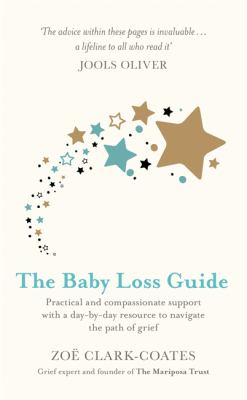

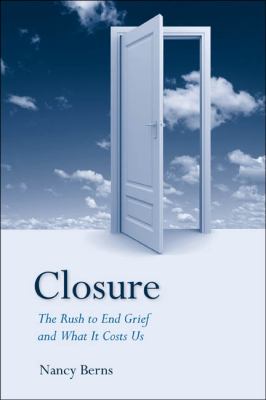


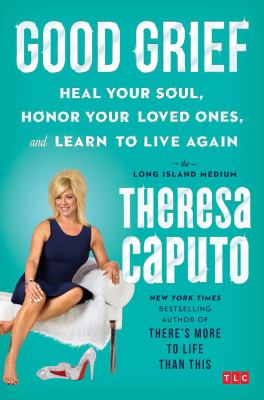

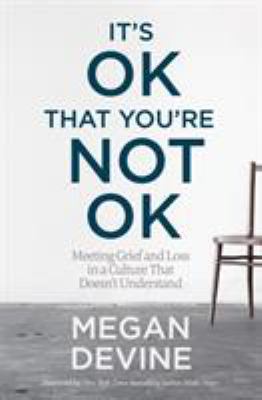





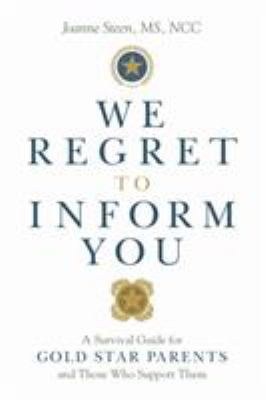





Comments
Post a Comment